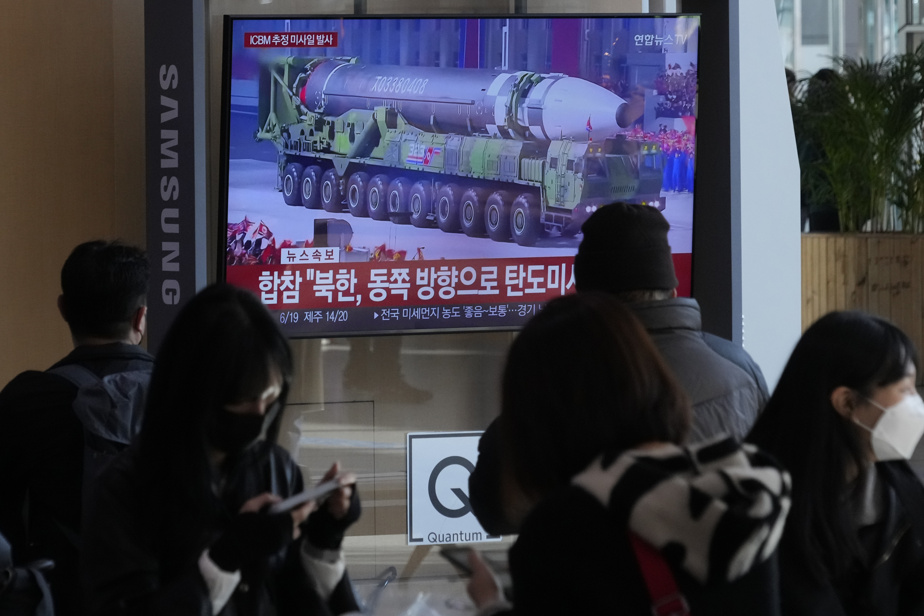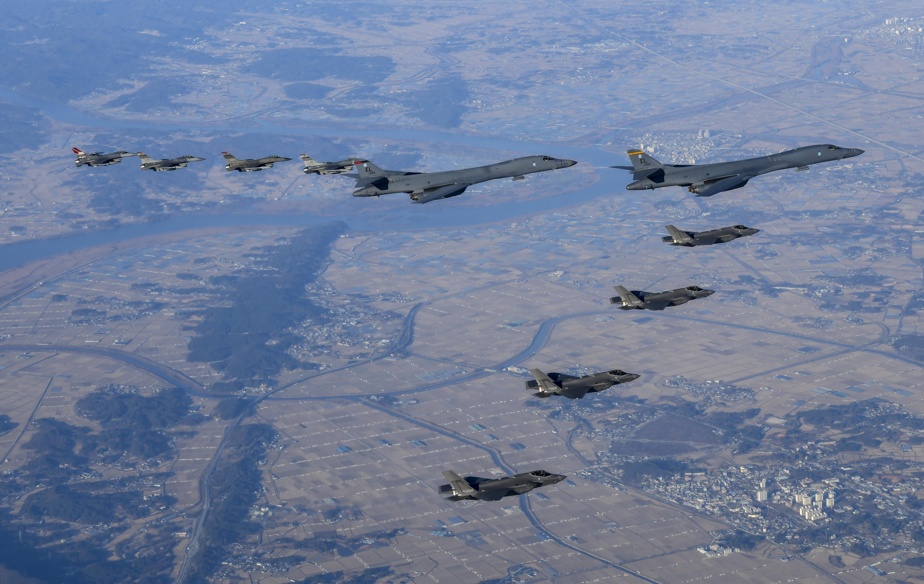
(SEOUL) North Korea on Friday launched an intercontinental ballistic missile (ICBM) that fell off the coast of Japan, the latest in a string of missile attacks in recent weeks, with Seoul, Tokyo and Washington expecting an imminent nuclear test from Pyongyang. .
South Korean civil servants said the long-range missile, which was fired from the Chunan region of Pyongyang toward the East Sea at about 10:15 a.m. (8:15 p.m. ET Thursday), was found to be suspicious. Sea of Japan.
Tokyo said the missile traveled about 1,000 km and that Japanese forces did not attempt to destroy it in flight. Japanese Defense Minister Yasukazu Hamada noted that the projectile reached a maximum altitude of 6000 km and concluded that it was an “ICBM-class ballistic missile”, although other details are being analyzed.
“A ballistic missile launched by North Korea appears to have landed in our exclusive economic zone in Hokkaido, the largest island in the north of the Japanese archipelago,” Japanese Prime Minister Fumio Kishida said.
It is not the first time a North Korean missile has ended its course in Japan’s exclusive economic zone (EEZ), which extends 200 nautical miles (370 km) off a state’s coast. between territorial waters and international seas.
Mr. Kishida condemned North Korea “repeating provocations with unprecedented frequency. We reiterate that this is completely unacceptable.”
On November 3, North Korea had already launched an ICBM, but Seoul and Tokyo reported that the launch failed. Last March, the country broke a 2017 ban on launching long-range missiles of this type.
North Korea had already launched a short-range ballistic missile on Thursday, hours after the foreign minister’s warning, vowing a “tough” response to strengthen the defense alliance between Seoul, Tokyo and Washington.
The United States, South Korea and Japan have stepped up joint military maneuvers in recent months to counter threats from North Korea, which Kim Jong-un sees as a dress rehearsal for an invasion or overthrow of the regime. .

Associated Press
US and South Korean fighter jets and bombers took part in a joint air exercise on November 5.
During a meeting on Tuesday on the sidelines of the G20 summit in Bali, US President Joe Biden tried to convince his Chinese counterpart Xi Jinping to mediate with North Korea. thought
Mr. Biden, his South Korean counterpart Yoon Suk-yeol and Mr. Kishida also vowed a “strong and firm” response if Pyongyang carried out the test on Sunday, the seventh in its history since 2017.
North Korean Foreign Minister Cho Son Hui responded that the strengthening of the military alliance between Seoul, Tokyo and Washington “enters an unpredictable phase of the situation on the Korean Peninsula.”
“Hard” is the answer
Mr.me Cho uses an acronym for North Korea’s official name, the Democratic People’s Republic of Korea.
North Korea carried out an unprecedented series of missile launches in early November, including a missile that landed near South Korea’s territorial waters for the first time since the end of the Korean War in 1953, prompting President Yoon to denounce a “veritable territorial invasion”.
November 2 alone saw 23 more North Korean missile launches than in 2017, when leader Kim Jong-un and then-US President Donald Trump traded threats of nuclear war.
In September and October, Pyongyang had already conducted numerous launches, including a medium-range ballistic missile that flew over Japan for the first time in five years.
Pyongyang justified its November force by an “aggressive and provocative” approach by Seoul and Washington.
North Korea, which is barred from launching ballistic missiles under UN resolutions, has rifts in the Security Council, with China and Russia blocking any UN effort to block US efforts in this direction.





